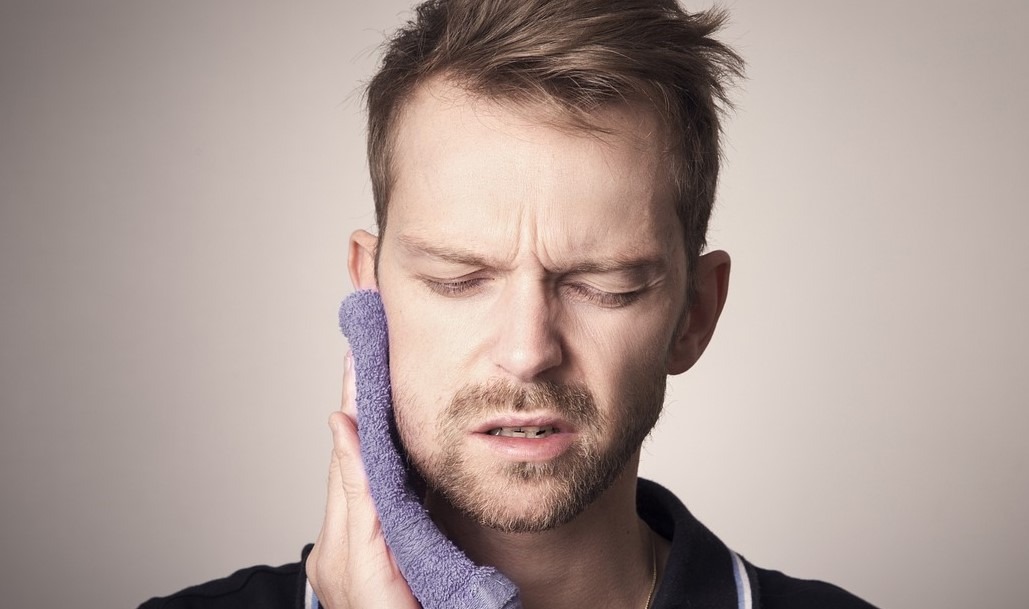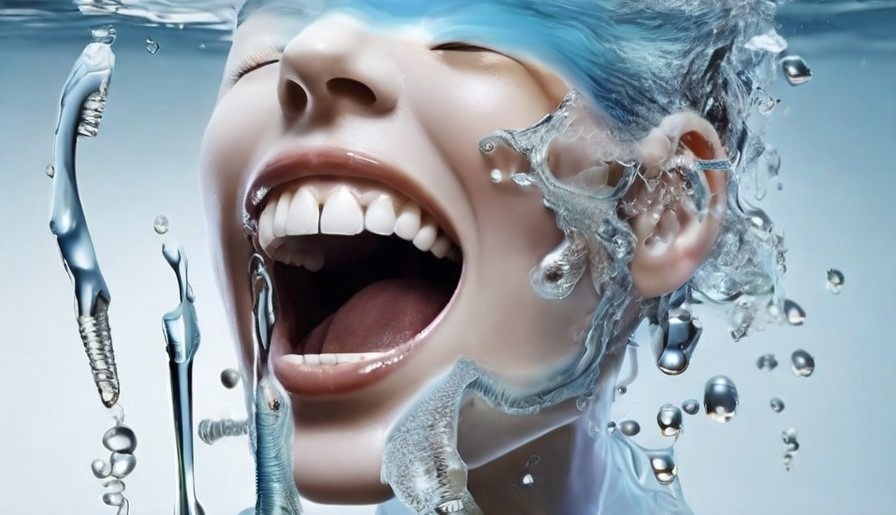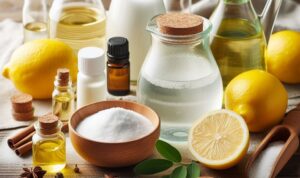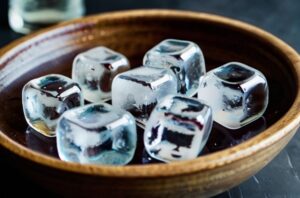Have you ever experienced that sharp, sudden pain in your teeth when you take a sip of ice-cold water? It’s like your teeth are staging a protest against that refreshing gulp. But fear not, you’re not alone in this chilly dental dilemma, Most people say: teeth hurt when I drink cold water. Contrary to what many believe, this isn’t just about having sensitive teeth; there’s more to the story. In this blog, we’re diving into the icy waters of tooth sensitivity to unravel the mysteries behind why your teeth throw a fit every time cold water comes into play.
Understanding Tooth Sensitivity
Tooth sensitivity is like a grumpy neighbor – unpredictable and always causing a scene at the worst times. It’s not just about cold water; it’s about understanding what makes your teeth so touchy.
Picture this: you’re enjoying your favorite iced beverage, and suddenly, your teeth send shockwaves of discomfort. But why? It turns out, that beneath that pearly white exterior, your teeth have nerves and tiny tubules that lead to the pulp – the core of your tooth.
When these nerves encounter extreme temperatures, like the chill from cold water, they react, triggering that unpleasant sensation. It’s not just about being overly sensitive; it’s a physiological response.
The Cold Water and Teeth Relationship: tooth hurts when drinking water

The Shocking Symphony of Discomfort:
Imagine taking a refreshing sip of cold water, only to be met with an electrifying sensation in your teeth. This isn’t a random occurrence; it’s a symphony of discomfort orchestrated by the nerve endings in your teeth.
As the cold liquid makes contact, these nerves react by contracting and sending signals to your brain, interpreted as pain. It’s like an internal alarm system, warning you of the temperature extremes.
It’s Not Just About Sensitivity:
Contrary to popular belief, the teeth and cold water tango isn’t exclusive to those with sensitive teeth. Even if your teeth are fortress-strong, the nerves within can still react to abrupt temperature changes.
It’s not merely about enamel erosion or gum health; it’s a shared experience transcending dental conditions.
Common Causes of teeth hurt when I drink cold water
There are some common reasons for tooth hurts when drinking water.
Nerve Stimulation: The Cold Culprit:
One major player in the teeth and cold water drama is the direct stimulation of nerve endings. Nestled in the pulp of your teeth, these nerves act as messengers, sending signals to your brain when they encounter extreme temperatures.
The brain, interpreting these signals as pain, prompts your teeth to react – a physiological warning system.
Enamel Erosion and Gum Recession: The Co-Conspirators:
Enamel erosion and gum recession join the chilly conspiracy. If your enamel is already worn down due to acidic foods or aggressive brushing, the cold penetrates more easily, intensifying discomfort. Gum recession, exposing tooth roots, makes them more susceptible to temperature variations.
However, even with impeccable dental health, the nerves’ reaction remains constant.
Beyond Health: How Teeth Respond Matters:
Interestingly, the teeth and cold water symphony isn’t solely about dental health. It’s also about how teeth respond to sudden temperature changes. Whether you’re meticulous with your oral care or occasionally miss a step, the shared experience persists, transcending individual dental conditions.
Also read: Dental Care Tips Following Wisdom Teeth Removal
7 Reasons teeth hurt when I drink cold water
Let’s unravel the mystery behind this chilly dental drama and explore the seven reasons your teeth might be staging a rebellion against that refreshing cold sip.
1. Nerve Reaction to Extreme Temperature:
Your teeth are equipped with nerve endings, tucked away in the pulp, ready to send signals to your brain at a moment’s notice. When ice-cold water comes into play, these nerves react by contracting, sending signals interpreted by your brain as pain.
It’s like an internal alarm system, warning you of the temperature extremes. So, it’s not necessarily a sign of sensitivity; it’s more about how your nerves respond to the sudden chill.
2. Enamel Erosion:
Enamel, the protective outer layer of your teeth, shields them from various elements. However, when enamel erodes due to factors like acidic foods or aggressive brushing, it leaves your teeth vulnerable.
Cold water, reaching the more sensitive layers beneath the worn-down enamel, can trigger discomfort. So, it’s not just about the cold; it’s about the compromised protective shield.
3. Gum Recession: Exposing Tooth Roots
Gums play a crucial role in safeguarding your teeth. When gums recede, the roots of your teeth become exposed, lacking the protective covering of enamel.
Exposed roots are more susceptible to temperature variations, causing heightened sensitivity. So, it’s not just about the surface; it’s about what lies beneath and how roots react to the cold.
4. Tooth Decay: Cavities and Cold Sensations
Tooth decay, often fueled by sugary and acidic foods, can lead to cavities. These cavities expose the inner layers of your teeth, making them more responsive to temperature changes.
If you’ve been neglecting your dental hygiene, cavities might be contributing to the cold water discomfort. So, it’s not just about the taste; it’s about the consequences of sweet indulgences.

5. Teeth Grinding: Wear and Tear Under Pressure
Grinding your teeth, whether consciously or during sleep, can lead to wear and tear. This wear weakens the enamel and exposes the sensitive layers underneath.
If you wake up with sore jaws or notice flattened surfaces on your teeth, teeth grinding might be a silent contributor to your cold water discomfort. So, it’s not just about the grind; it’s about the aftermath.
6. Recent Dental Procedures: Sensitivity as a Side Effect
If you’ve recently undergone dental procedures like fillings, crowns, or whitening treatments, temporary sensitivity might be expected.
Dental interventions can sometimes cause a heightened response to temperature changes. If you’re in the post-procedure phase, your teeth might need a bit of time to adjust. So, it’s not just about the procedure; it’s about the recovery.
7. Genetics: Inherited Sensitivity Traits
Believe it or not, your genes play a role in how your teeth respond to various stimuli. Some individuals might be genetically predisposed to heightened sensitivity, making them more prone to discomfort from cold water.
If others in your family share this experience, genetics could be a contributing factor. So, it’s not just about your habits; it’s about the hand you’ve been dealt genetically.
Also read: How To Save A Dying Tooth Naturally
Practical Tips for Relief and Prevention
There are some Practical Tips for Relief and Prevention of tooth hurts when drinking cold water.
Myth Busting: Relief Isn’t a Distant Dream:
Contrary to the belief that once teeth hurt when drinking cold water, there’s no turning back, relief is not a distant dream. Practical strategies and natural remedies can ease the discomfort and prevent future dental symphonies. It’s not just about survival; it’s about thriving in the face of dental challenges.
Tailoring Your Dental Arsenal: Sensitive Toothpaste:
One effective strategy is embracing toothpaste designed explicitly for sensitive teeth. These toothpaste variants contain desensitizing agents that gradually block nerve signal transmission, offering relief over time.
It’s like providing your teeth with a soothing balm to calm their protest.
The Fluoride Factor: Strengthening Your Dental Shield:
Enter fluoride, the dental superhero. Incorporating fluoride into your routine strengthens enamel, acting as a shield against temperature-related discomfort.
Whether through fluoride toothpaste or professional fluoride treatments, this mineral is a game-changer in the battle against tooth sensitivity.
Gentle Brushing: A Golden Rule:
In the dental warrior’s handbook, a golden rule stands out – soft on the toothbrush, firm on oral health. Opt for a soft-bristled toothbrush to avoid aggravating sensitivity and practice gentle brushing techniques.
Aggressive brushing can contribute to enamel erosion, intensifying the teeth and cold water saga.
Also read: Understanding Mouth Yellowing: Causes and Remedies
Dental Wellness Strategies
Dental wellness techniques are a collection of preventative actions intended to keep teeth in good condition and avoid dental problems. These tactics emphasize holistic methods to enhance general well-being rather than just dental care.
Proactive Dental Wellness:
Dental wellness isn’t merely about addressing sensitivity when it arises; it’s about adopting a proactive approach to overall oral health. This section unfolds the broader strategies to ensure your teeth aren’t just surviving but thriving in the face of dental challenges.
Enamel-friendly Foods:
Start by incorporating enamel-friendly foods into your diet. Calcium-rich choices like dairy products and leafy greens contribute to enamel strength, fortifying your dental fortress. Pair this with an adequate intake of vitamin D, supporting calcium absorption for robust dental health.
Hydration as a Dental Ally:
Water, often underestimated, emerges as a dental ally. Beyond keeping you hydrated, it washes away acidic and sugary residues that contribute to enamel erosion. It’s a simple yet powerful habit that significantly contributes to maintaining dental health and minimizing sensitivity triggers.
Regular Dental Check-ups:
Regular dental check-ups stand as the cornerstone of dental wellness. Scheduling routine visits to your dentist allows for early detection of issues, ensuring timely intervention. Your dentist can offer personalized advice and recommend professional treatments based on your unique dental health needs.
Also read: Roof of Mouth Swelling: Causes and Solutions
Product Recommendations and Dental Care
These are not just mere products; they are strategic allies in your quest for a more comfortable relationship between your teeth and cold water.
Sensitive Teeth Toothpaste:
Dive into the world of sensitive teeth toothpaste, where the magic happens. Brands specializing in sensitivity relief incorporate key ingredients like potassium nitrate or strontium chloride.
These elements are renowned for their desensitizing properties, gradually reducing sensitivity and offering a soothing embrace to your protesting teeth.
Fluoride Mouthwashes:
For an extra layer of protection, consider fluoride mouthwashes. A post-brushing swish with fluoride mouthwash strengthens enamel and extends the shield against temperature-related discomfort.
It’s akin to giving your teeth an added boost of resilience, preparing them for the next encounter with chilly beverages.
Electric Toothbrushes:
In the arsenal of dental care, electric toothbrushes emerge as unsung heroes. Gentle on your teeth and effective in teeth removal, these devices can elevate your oral care routine.
Remember, it’s not just about what you brush with; it’s also about how you brush. Adopt a gentle, circular motion to maintain dental harmony.
Also read: Teeth Remineralization
Conclusion
As we wrap up our exploration of teeth hurt when I drink cold water, it’s essential to recap the key insights we’ve uncovered. Contrary to the belief that this discomfort is an insurmountable obstacle, we’ve revealed the reasons behind it and equipped ourselves with practical solutions.
The journey through dental discomfort is not a solitary one. Dental wellness strategies and practical tips from professionals have illuminated the path from discomfort to confidence. Armed with knowledge and proactive habits, individuals can navigate the dental seas with greater assurance.
In essence, dental wellness is a lifestyle, extending beyond the realm of sensitivity. Enamel-friendly foods, hydration habits, regular dental check-ups – these are not just remedies but proactive choices that contribute to overall oral health. It’s about fostering a harmonious relationship between you and your dental ensemble.
Also Read
Best Bleach Alternative You Can Use for Cleaning
Best Natural Remedies for Carpal Tunnel Syndrome
Get Rid of Crunching Sound in Neck + Causes
Does Hot Chocolate Help You Sleep?
How to Make Garlic Oil for Ear Infection
Frequently Asked Questions (FAQs)
Here are some questions that are commonly asked.
Not necessarily. While poor oral health can contribute to sensitivity, even those with stellar oral hygiene might feel the chill. The reaction is more about how your teeth’s nerves respond to sudden temperature changes rather than the overall health of your teeth.
The good news is that while it may not be completely eradicated, there are practical strategies to significantly reduce sensitivity. Consistent dental care, the right toothpaste, and lifestyle adjustments can turn the battle into a manageable skirmish, allowing you to enjoy cold beverages with less discomfort.
Several conditions, including tooth decay, gum recession, recent dental treatments, broken teeth, teeth grinding, vigorous brushing, dental erosion from acidic foods, and sinus problems, can result in sudden tooth sensitivity to cold. Increased sensitivity may result from these circumstances exposing the teeth’s delicate inner layers. See a dentist for an accurate diagnosis and suitable care tailored to your circumstances.






Good information
I will implement on it.
Thanks for your guidance.